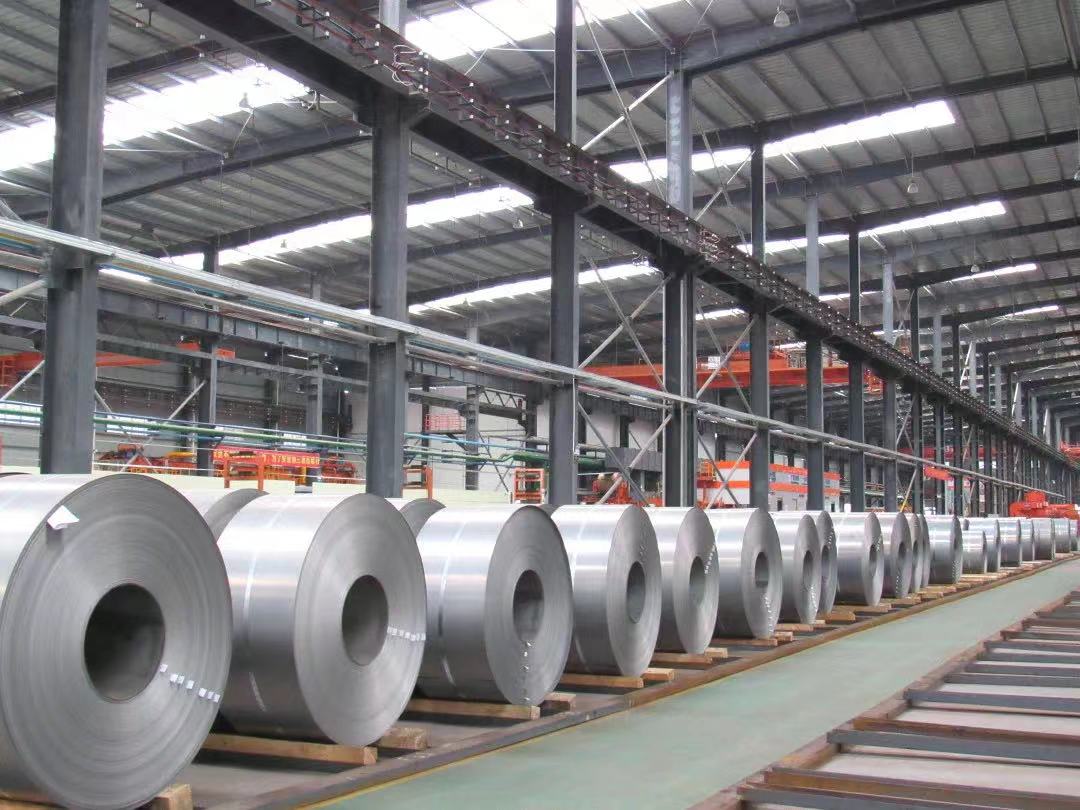
In the food processing industry, hygiene and safety are critical aspects of production. With increasing consumer demands for high-quality food, food manufacturers are constantly faced with the challenge of ensuring that their production environments meet rigorous standards. One effective solution to address these challenges is the use of steel sheets, particularly in applications that require a high level of cleanliness, such as the walls, ceilings, and floors of production facilities. These materials play a crucial role in preventing microbial contamination and cross-contamination, ensuring the safety and quality of food products.
Advantages of Steel Sheets in the Food Processing Industry
Steel sheets, specifically those made from high-quality materials such as galvanized steel or stainless steel, offer numerous advantages when used in food production environments. These materials are durable, resistant to corrosion, and can withstand frequent cleaning and disinfection processes. The smooth surface of steel sheets makes them easy to clean and reduces the likelihood of dust and microbial build-up. Additionally, steel sheets are fire-resistant, an essential feature for industrial environments, and they provide excellent structural integrity. These benefits make steel sheets an ideal choice for creating sanitary, efficient, and safe production environments in food processing facilities.
Hygiene Demands in the Food Processing Sector
The food processing industry demands the highest standards of hygiene. Even the slightest contamination can have severe consequences, leading to food safety issues and compromised product quality. To meet these stringent hygiene requirements, food processing plants need to use materials that facilitate cleanliness and prevent contamination. Steel sheets are an excellent option for achieving these objectives. Their resilience against water, chemicals, and physical wear ensures that they maintain a high level of cleanliness over time, which is essential for food safety and compliance with industry regulations.
Applications of Steel Sheets in the Food Processing Industry
1. Walls and Ceilings in Production Facilities:
Steel sheets are extensively used for the construction of walls and ceilings in food production facilities. Their smooth surface prevents the accumulation of dust and contaminants, making them easy to wipe down and sanitize. This minimizes the risk of microbial growth and cross-contamination. Steel sheets also provide sound insulation, which helps to reduce noise in busy production environments, creating a more comfortable and productive workplace for employees.
2. Floors and Dividers:
Steel sheets are also used for flooring and partitioning within food processing facilities. Their durability and resistance to corrosion and wear make them suitable for areas that are regularly cleaned and disinfected. The non-porous surface of steel sheets prevents the absorption of liquids and contaminants, making them ideal for maintaining cleanliness in high-risk areas. Additionally, steel sheet partitions help to separate different production zones, preventing the cross-contamination of raw and processed foods.
3. Cold Storage Areas:
For food products that require refrigeration or freezing, steel sheets are used in the construction of cold storage rooms and walk-in freezers. Their excellent insulation properties help to maintain low temperatures while preventing condensation and mold growth. This is essential for preserving the quality and safety of perishable food products and extending their shelf life.
The Long-term Impact of Steel Sheets in the Food Processing Industry
The use of steel sheets in the food processing industry has a far-reaching impact on food safety and business efficiency. By significantly reducing the risk of contamination, steel sheets contribute to higher-quality food products and improved safety for consumers. Furthermore, steel sheets help reduce the cost of cleaning and maintenance, leading to lower operational expenses. The durability and long lifespan of steel sheets also mean that food processing plants can rely on them for years, ensuring continued efficiency and compliance with safety standards.
In addition, the use of steel sheets supports sustainable practices in the food processing industry. By opting for long-lasting and easy-to-clean materials, food manufacturers are able to minimize waste and reduce the environmental impact of their operations. This is increasingly important as both consumers and regulators push for more eco-friendly practices in food production.
Conclusion
In conclusion, steel sheets are indispensable in the food processing industry, offering a reliable solution to meet the industry’s high hygiene and safety standards. With their durability, ease of maintenance, and resistance to contamination, they are crucial in ensuring that food products remain safe and of high quality. As technology advances and consumer demands for food safety continue to rise, the role of steel sheets in the food processing industry will only become more prominent. Steel sheets are set to continue safeguarding food safety and ensuring a clean, efficient, and sustainable production environment.





